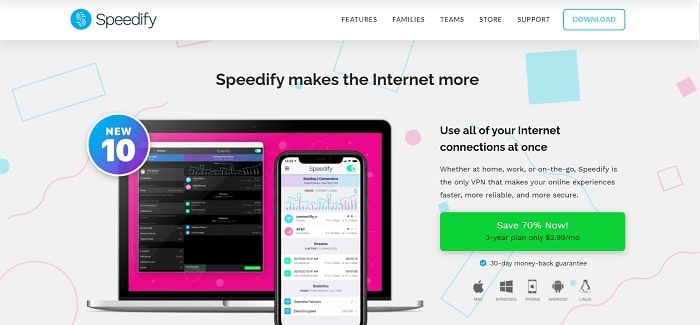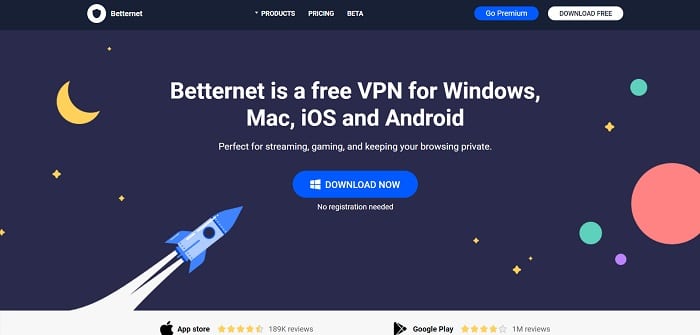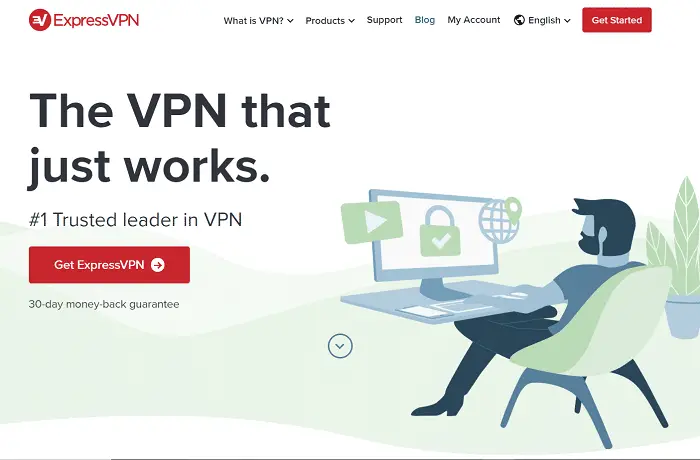Have you ever tried to download some files, such as games, movies, etc., from torrents? If your answer is affirmative, you must remember that downloading copyrighted material from torrents is illegal. But, these laws vary from country to country, and thus, if something is illegal in the United Kingdom, it may be legal in Australia, or if something is legal in Russia, it might be unlawful in the USA. Hence, a Virtual Private Network service, better known as VPN, is used.
Here are some free VPN for torrenting
- Nord VPN
- Windscribe VPN
- Hide. me
- Tunnel Bear
- Speedify
- Betternet
- Express VPN
- VYPRVPN
- Hotspot Shield
These Free VPN for Torrenting provide you with a safe, much secure, and encrypted connection when you connect to servers located in far-off nations across the globe. With these VPN torrenting software, you can securely browse torrent sites for Mac and Android.
See Also: Torrent Trackers For 2023 | All You Need To Know About It
Table of Contents
11 Best Free VPN for Torrenting to Use in 2023
This article will discuss the best VPN services you can use in 2023. This list of best VPNs for torrenting is not at all exhaustive, but it has the top-ranked services.
Nord VPN
Suppose you are looking for a cheap VPN service but still are somewhat skeptical about the security and privacy features of that particular one because you know that privacy and money cannot be saved together. In that case, you should opt for the Nord VPN service.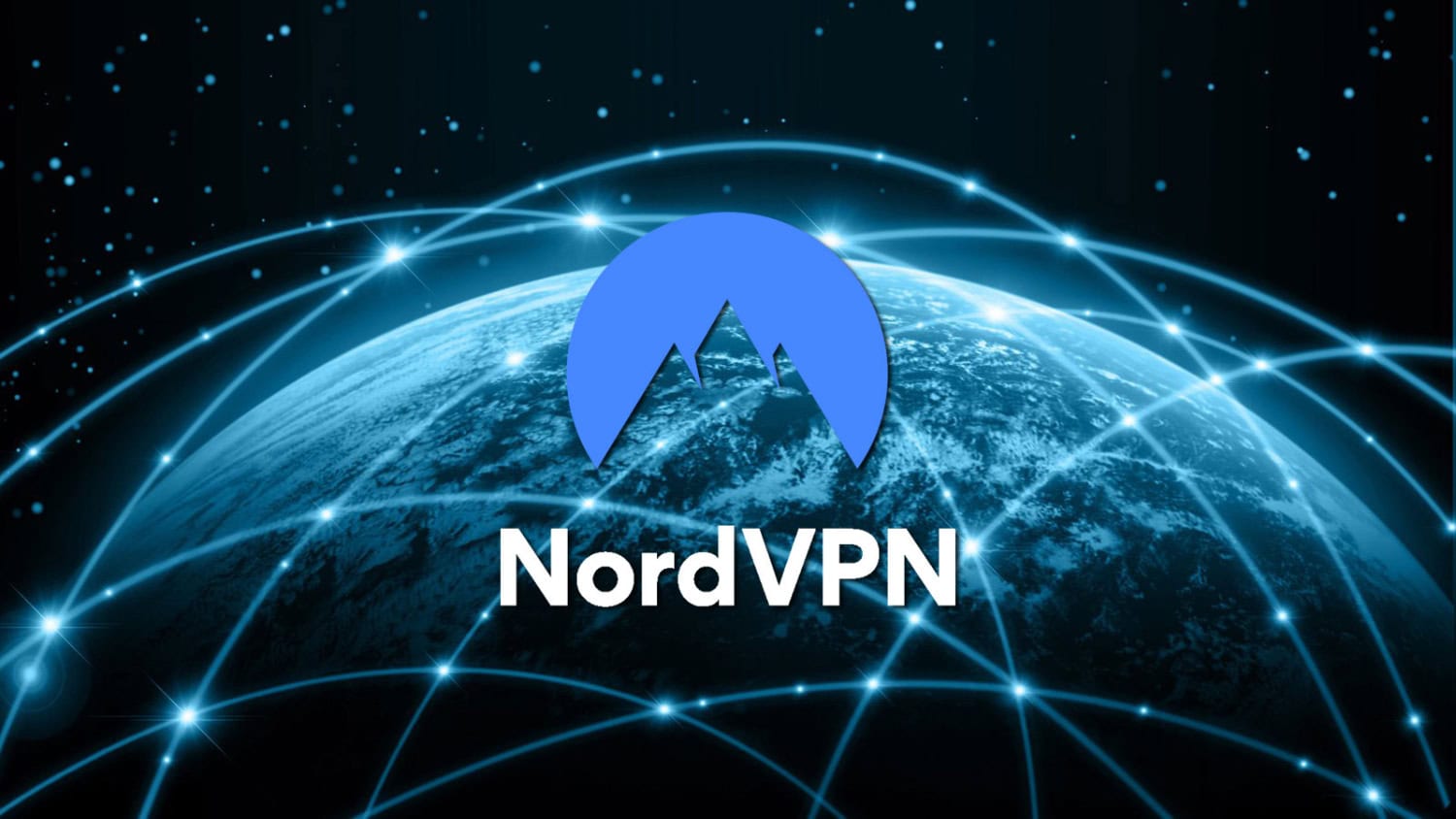
This is the best VPN service in the cheap VPN services category. The Nord VPN has a vast network of over 5000 servers across 60 locations worldwide. The central server is in a secure location in Panama City, and thus you can easily rely on your privacy.
The main features of the Nord VPN services include a VPN security bypass, DNS leak protection, and an exciting part of payment via cryptocurrency.
The only issue you might face while using this VPN service is its slow download speed, so you must wait longer to complete your files.
Also, when it comes to privacy, it has a commendable no-log-in policy which means that you do not need to log in every time you use a website, so just be rest assured about security and privacy.
The monthly charges for this VPN service are significantly less and start from less than 3 USD per month which is a good deal.
Visit: Nord VPN
See Also: 4 Best Free VPNs for Chrome to Ensure Complete Safety
Windscribe VPN
The Windscribe VPN is a great Free VPN for Torrenting services and is highly beneficial if you want to use torrents. The service terms of this VPN service are tremendous and user-friendly, but the company does not support any nonsense, which is evident from their stern and strict policies that are in effect.
The Windscribe service has more than 300 servers which are located across 50 locations across the globe.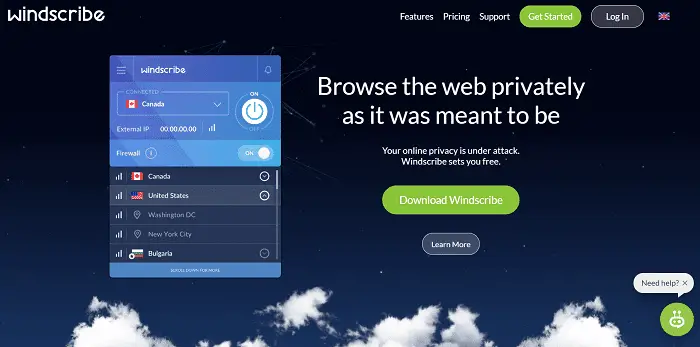
But the most exciting part of this VPN service is that it allows its users t have unlimited connections when all the other game players limit their users to a maximum of 5 or 6 connections. The platforms supported by the Windscribe VPN service include Android, Windows, Mac, etc.
However, the Android version has its issues because it has been launched recently and is still undergoing development. The plan for the user is excellent as well, and this service also has a free plan which gives 10 GB of data to the users for one of their devices.
Visit: Windscribe VPN
See Also: Top 3 Ways to Fix Ares Wizard Not Working Error
Hide. me
Hide. Me is another fast VPN compatible with Android and iPhone. Its free version lets you connect to 3 servers and avail up to 2GB monthly. Unfortunately, it doesn’t support OpenVPN, a letdown to security-conscious users.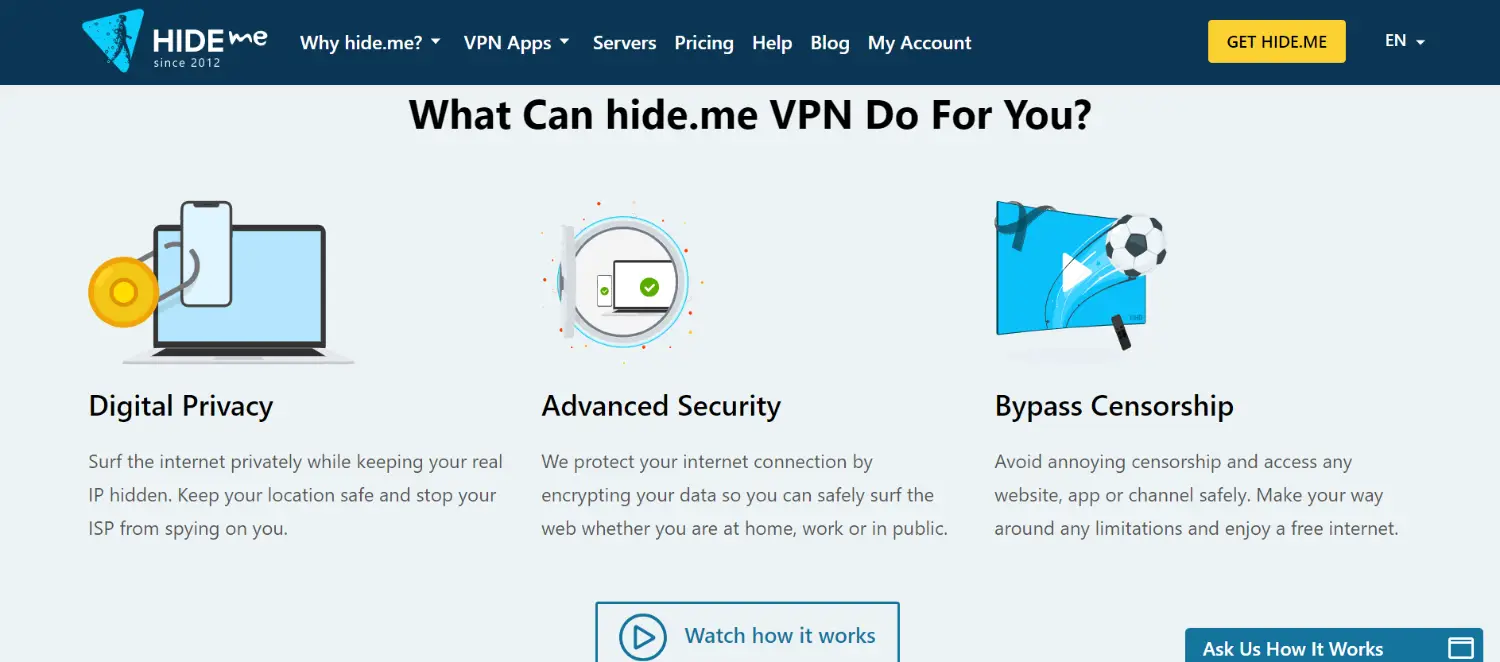
It supports PPTP, L2TP, SSTP, and IPsec so that users can use those benefits. You don’t have any restrictions besides the download limit. So, go torrenting happily in this Free VPN for torrenting.
Visit: Hide.me
Tunnel Bear
Tunnel Bear is an inconceivably easy-to-use VPN and an incredible decision for fledglings. You get a wide decision of P2P-accommodating workers around the globe. I had the option to downpour utilizing this free assistance during my tests.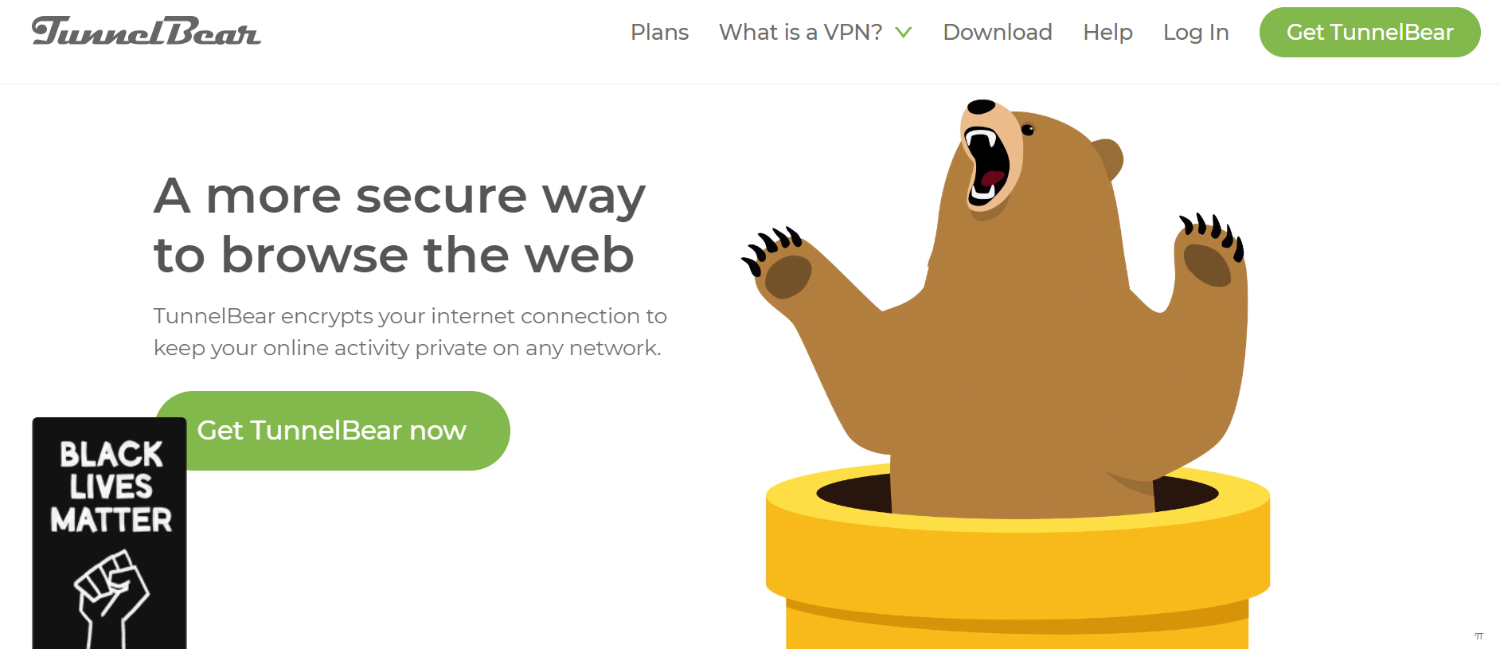
After some burrowing around, I discovered that it suggests utilizing its workers in the US, UK, Canada, Germany, Sweden, Romania, or the Netherlands for torrenting.
Notwithstanding the off chance that you live far away from these nations or use workers found somewhere else, you may see that rates become excessively delayed for P2P traffic.
Tunnel Bear’s information remittance may also be excessively prohibitive for you. You get 500MB of information each month. That will not be useful for sharing superior quality (HD) video records, yet it’s ideal if you simply need to download photographs and reports.
You can get an extra 1GB of free information if you tweet the organization. Shockingly, that will not permit more than perusing and real-time recordings on Youtube. You’ll additionally have to tweet Tunnel Bear each time you need a top-up.
With these restrictions to the side, Tunnel Bear offers extraordinary security. It has been autonomously examined by online protection specialists, who checked the unwavering quality of its military-grade encryption, severe no-logs strategy, and other security highlights.
Tunnel Bear’s paces have likewise intrigued us in various tests. While it can’t contend with premium suppliers, for a free VPN, it does pretty well.
Visit: TunnelBear
Speedify
Speedify utilizes creative channel-holding innovation to support your association speed while you’re torrenting.
Channel holding works by packaging all potential associations on your gadget and joining them to communicate information. Your online action is part of these associations, similar to quick and moderate paths on a thruway.
This innovation has established Speedify’s heritage in the VPN world, as it implies quicker and more dependable associations than most free VPN can offer.
Tragically, it also implies that utilizing Speedify can twofold your information use, which is expensive if you’re on a restricted cell or WiFi plan.
However, quicker velocities mean quicker torrenting, and I discovered Speedify quickly enough outside of pinnacle hours. Notwithstanding, with an information cutoff of 2GB each month, the most you’ll have the option to share are a couple of munites of video or some photographs.
Visit: Speedify
Betternet
Betternet is free assistance that doesn’t expect you to enlist. It doesn’t record or access private data like your name, email address, or installment subtleties. In any case, is Betternet useful for torrenting? Indeed, however, it has limits.
Betternet gives you 500MB of free information daily, more than other accessible administrations. You can use it to share video moments consistently, transfer your photographs to the cloud, or spread enormous downloads over a few days.
It additionally bolsters P2P traffic. Unfortunately, as a free client, you’ll gain admittance to Betternet’s US worker. You can’t physically choose a worker, and you can’t unblock locales that aren’t accessible in the US.
In case you’re torrenting through Betternet from outside the US, you may encounter moderate rates and trouble associating with your downpour customer because of distance and association speeds.
Likewise, the US is famously unpleasant to downpour stages and their clients. This could cause issues later if your number one deluge site gets blue-penciled.
Visit: BetterNet
Express VPN
The Express VPN is also one of the best Free VPN for Torrenting services that provides excellent privacy and encryption services. The Express VPN has a vast network of more than 2000 servers which are located at 148 different locations.
They also have over 30000 IP addresses under their ownership, making internet access extremely easy and secure for the users. The servers are located in 94 countries worldwide, enabling it to provide different clients based on the user’s device.
To start with Express VPN, you can download their Windows application. The Express VPN service supports Windows, iOS, Android, and Blackberry platforms. It has an excellent customer support team who is always there to assist you if you need any assistance.
Also, a series of video tutorials help the users grasp the features of VPN service easily and quickly, thereby making their experience great. The pricing of the Express VPN is excellent, too, and the users can choose one out of three plans based on their requirements.
Also, if unsatisfied, they can demand a refund within 30 days, so the money won’t be wasted if the service standards are not good.
Visit: Express VPN
See Also: Top 11 Free VPN For Torrenting (2023 Updated)
VYPRVPN
This is an extremely great VPN with servers in Switzerland’s highly secured nation. The service network has many servers, more than 700 in 70 different locations, making it highly secure.
Also, the entire network of servers is operated and maintained by the company itself, so no third parties are involved. Hence, after reading this VyprVPN review, you can rest assured that your data is safe and your online journey is entirely private.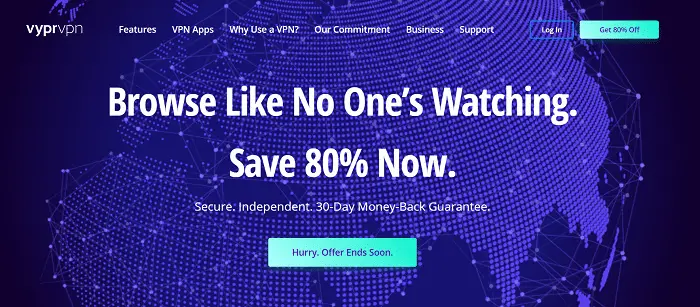
When you opt for this Free VPN for Torrenting service, it provides you with an unlimited data usage facility and a DNS service.
The company also provides you with the facilities for VPN blocking bypass, and a customer support team is available 24×7 to assist you when in need.
Again, the tutorial videos are a perfect guide if you need tutorials or want to know about any feature you encounter for the first time.
Visit: VyprVPN
Hotspot Shield
Hotspot Shield is a very well-known Free VPN for torrenting. Mainly because it offers a high speed to download your torrent files, it is a free version, so it limits your download size to 500 MB daily, which may be a slight inconvenience, depending on your files. But the speed it offers is unmatchable.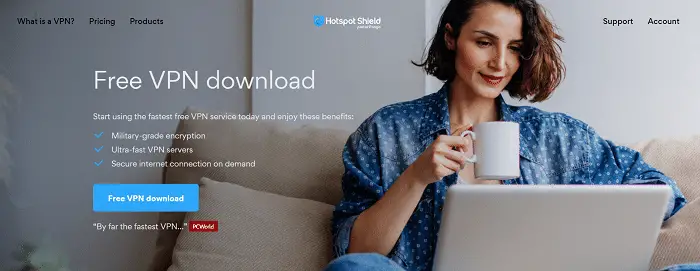
So, if you want to download torrents less than 500 MB quickly, consider Hotspot Shield. It supports one connection per account.
Visit: Hotspot shield
See also: 3 Ways to Fix Overwatch Console Error LC-202 – TechWhoop
Security Kiss
Security Kiss has many affordable plans for your convenience besides having a free plan. It gives you access to four servers of a different location on the free plan but only provides 300MB of data daily. So, it is recommended that you use this free VPN for torrenting only to download songs or images, not movies.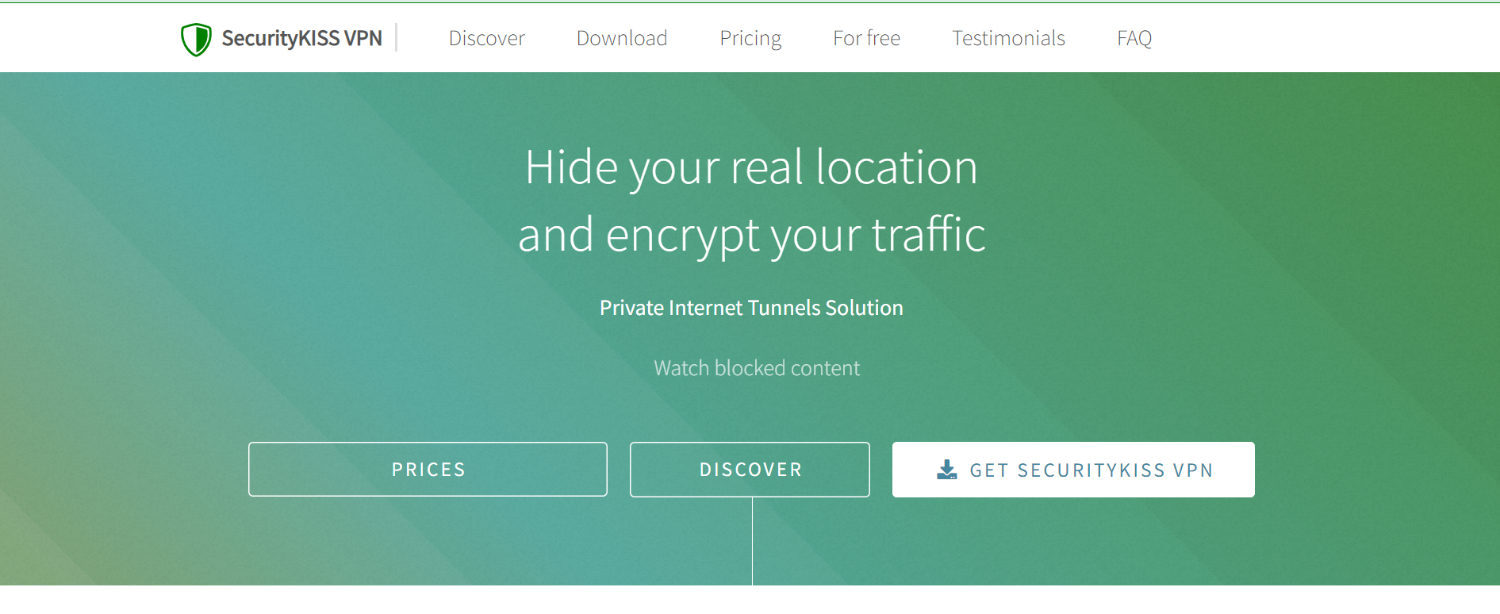 It can also be used to download light APK files. The big plus point is that it supports OpenVPN, creating a safe environment for users in both the free and premium versions.
It can also be used to download light APK files. The big plus point is that it supports OpenVPN, creating a safe environment for users in both the free and premium versions.
Visit: Security Kiss
See Also: Top 10 Best & Fastest Free Public DNS Servers (Updated)
ProXPN
ProXPN is the last one on our list. It offers one location with 300 kbps of speed for a free account. This speed will surely take you a few hours to download a file, but it is worth the security it offers. They also have a premium version of the VPN.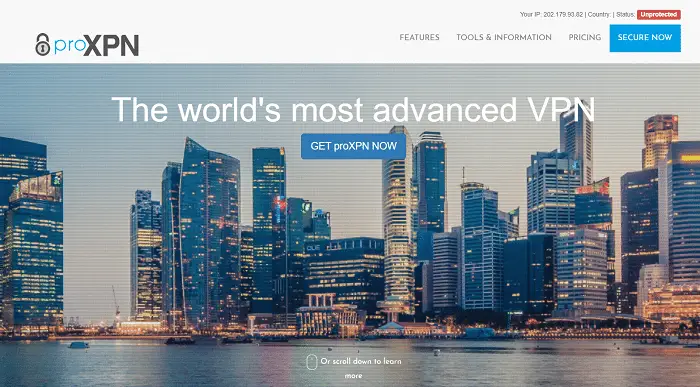
It is to be noted that the customer service to both these accounts is on the same level. If you don’t mind the slow downloading speed, ProXPN is the free VPN for torrenting that you should go for.
Visit: ProXPN
See also: What are Seeders and Leechers, And Why To Know About Them?
FAQs
Is there a free VPN for Torrenting?
Yes, there are free VPNs for torrenting, but they come with limitations. Some popular options include Windscribe and TunnelBear. However, free VPNs often have data caps, slower speeds, and limited server locations. Consider premium VPNs for more robust torrenting support and enhanced security.
How to use a VPN for torrenting free?
1. Choose a reputable free VPN tool such as TunnelBear or Windscribe. 2. Download and install the VPN app on your device. 3. Connect: Launch the VPN, connect to a server, and ensure your IP address is masked. 4. Start Torrenting: Begin torrenting while the VPN is active.
Is there a 100% free VPN?
There are VPNs with free plans, but truly 100% free VPNs typically come with limitations. Some services like ProtonVPN and Windscribe offer free versions with data caps, reduced speeds, and fewer server locations. While useful for basic needs, premium VPNs provide more comprehensive features and security.
Which VPN is free for torrenting R piracy?
Using a free VPN for torrenting or piracy raises legal and ethical concerns. Many free VPNs do not support or condone illegal activities; using them for such purposes can lead to consequences. It's essential to use VPNs responsibly and within the boundaries of the law.
Conclusion
These were the eight best Free VPN for Torrenting that users can use. As mentioned earlier, this list is not exhaustive, but we have tried our best to present the best of the best to you.
See Also: How to Deal With “Nvidia Capture Server Proxy” Process?

